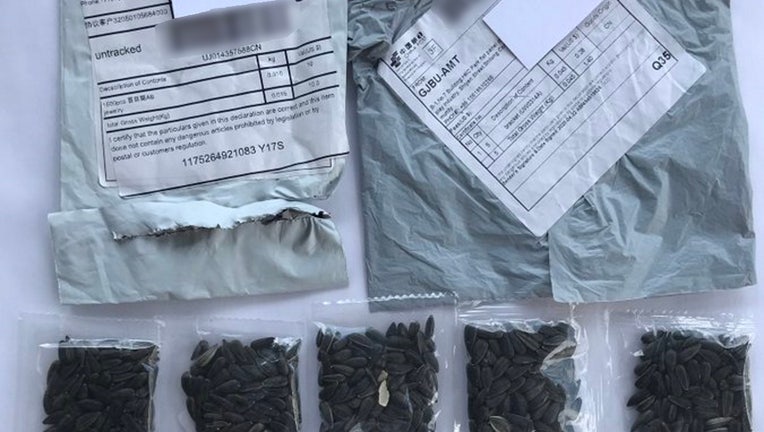Officials in Florida, other states warn about mysterious seed shipments from China

Photo: Kentucky Agriculture Commissioner Ryan Quarles)
FRANKFORT, Ky. - Agriculture officials in multiple states issued warnings Monday about unsolicited shipments of foreign seeds and advised people not to plant them.
Florida Agriculture Commissioner Nikki Fried says her office has received more than 160 reports of suspicious seed packets mailed from China.
Fried's office says the seed packets often arrive unexpectedly in packages bearing Chinese characters, and may bear the name China Post on the label. The packages may be labeled as jewelry, have also been reported in multiple states including Virginia, Kansas, Washington, Oklahoma, Louisiana, Utah, and others.
"If you receive unsolicited seeds by mail, don't open or plant them," Fried said, instead urging Floridians to report the shipments to the Florida Department of Agriculture and the USDA.
Fried's office said the introduction of plant seeds into the U.S. is tightly regulated by the USDA.
"Seeds of unknown origin may constitute agricultural smuggling, may be invasive, may introduce pathogens, toxins, or plant and animal diseases, may pose a risk of foodborne illness, and may pose a threat to plant, animal, and human health," the FDACS website warns.
In Kentucky, the state agriculture department was notified that several residents received unsolicited seed packets sent by mail that appeared to have originated in China, Agriculture Commissioner Ryan Quarles said. The types of seeds are unknown and could be harmful, he said.
The commissioner stressed that the seeds should not be planted.
Related: Mysterious seeds being mailed to Virginia residents could be from China
“We don’t know what they are, and we cannot risk any harm whatsoever to agricultural production in the United States," he said. “We have the safest, most abundant food supply in the world and we need to keep it that way.”
Anyone in Kentucky receiving packages of foreign or unfamiliar seeds should contact the state agriculture department immediately, Quarles said.
“At this point in time, we don’t have enough information to know if this is a hoax, a prank, an internet scam or an act of agricultural bio-terrorism," he said. “Unsolicited seeds could be invasive and introduce unknown diseases to local plants, harm livestock or threaten our environment."
Several other states have also received suspicious packages of seeds that appear to have originated from China, news outlets reported.
In North Carolina, the Department of Agriculture and Consumer Services said it was contacted by numerous people who received seed shipments they did not order. The agency said the shipments were likely the product of an international internet scam known as “brushing.”
“According to the Better Business Bureau, foreign, third-party sellers use your address and Amazon information to generate a fake sale and positive review to boost their product ratings,” said Phil Wilson, director of the state's Plant Industry Division.
The Associated Press contributed to this report.

